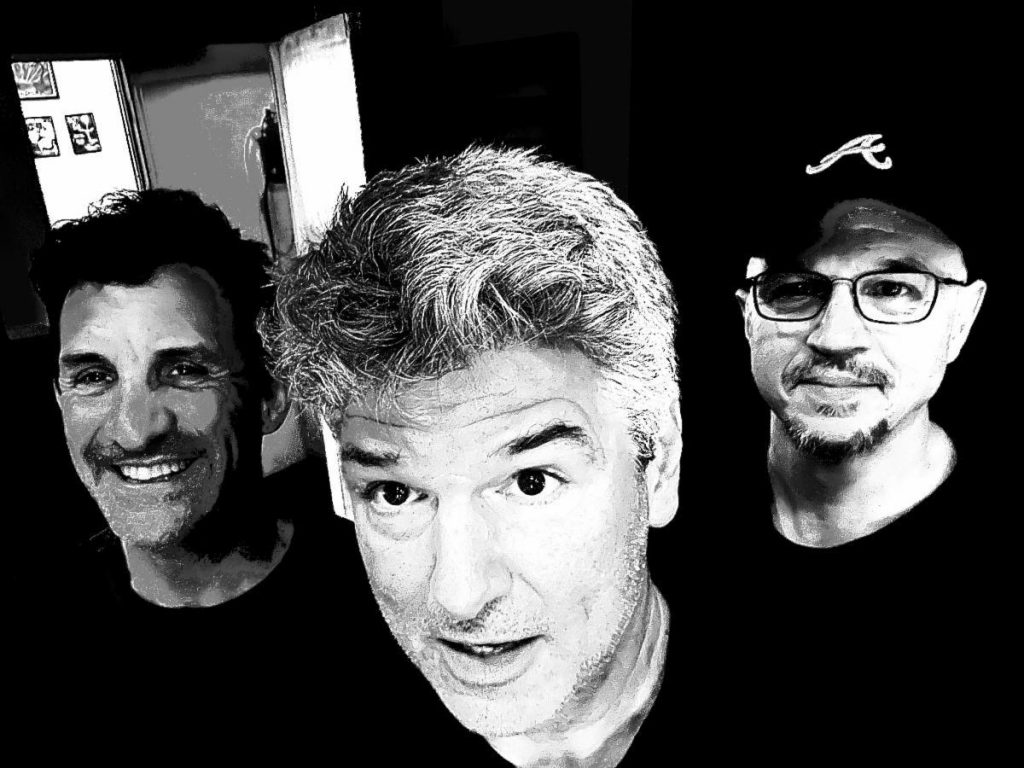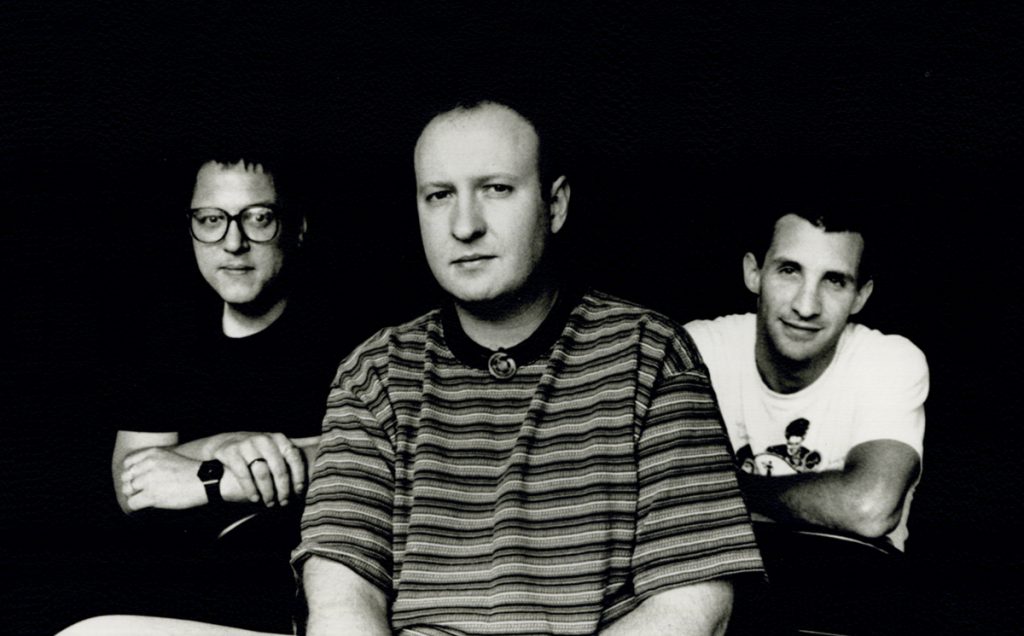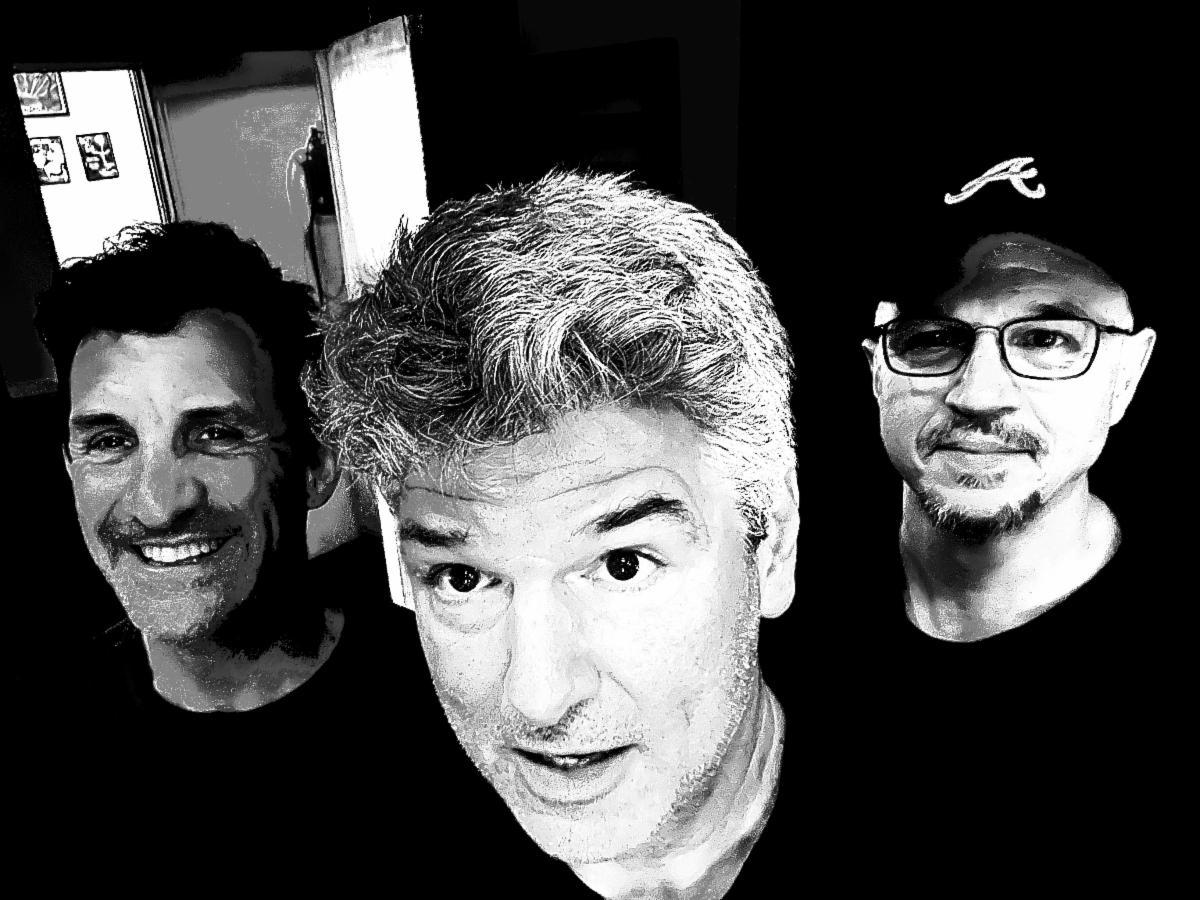
In a sense, Mercyland’s lack of success was a boon for David Barbe. Had the band not broken up, he most likely wouldn’t have found his way into Bob Mould’s orbit as the bass player for his most commercially successful band, Sugar. Founded in 1985, Barbe’s Athens, Ga.-based post-punk trio generated some significant buzz at the grassroots level with its frenetic live shows and promising 1989 debut. Mercyland’s hard-driving sound hit on all the right influences—from the Minutemen to Hüsker Dü to Dinosaur Jr—but Barbe, guitarist Andrew Donaldson and drummer Joel Suttles were never able to turn some positive word of mouth into anything sustainable. A second album was shelved when the band couldn’t get any label interest, and Mercyland dispersed in 1991.
Aside for his stint with Sugar, Barbe has since become a skilled producer (Drive-By Truckers, Son Volt, Deerhunter, the Glands), and he remains a fixture on the Athens music scene. He’s remixed and reassembled Mercyland’s final studio output, We Never Lost A Single Game, now available on Propeller Sound Recordings. Barbe offers his thoughts on Mercyland’s resurrection, along with some choice memories of his Sugar days and how he came to work on just about every Drive-By Truckers album.
What motivated you to finish what you started with Mercyland?
For years, the stuff, by my own desire, hadn’t been available anywhere. It was all out of print and not on any streaming services. “The legend may be better than the truth” had become my mindset, and I’m usually too busy moving forward to worry about looking back. But I’d periodically get pitched by people who wanted the Mercyland music out, and last year, I had three different label offers in a short period of time. That made think that people really were interested. Propeller Sound did that dB’s record (I Thought You Wanted To Know), and I love the dB’s. Propeller really wanted to do it, and they were amenable to all my crackpot ideas.
What was it like revisiting the music?
My first emotion was relief. Once I got into it, I was enjoying it. I told Andrew and Joel that we’re going to have to decide if we think this stuff is good. Is it as good as we thought it was at the time? I wanted to remix things because, with studio techniques back then, I could never really convey to people what I wanted. We had some hilarious arguments with people in studios in those days. Why does the snare drum need to sound like it’s on top of a mountain somewhere? Why does everything have to be so trebly all the time? Looking back, 58-year-old me thinks 23-year-old me was actually right most of the time.
Why wasn’t this stuff properly released in the first place?
When we first recorded We Never Lost A Single Game, we’d already decided in secret to break up. We’d had so many near misses with labels and things … We were in our mid-20s, I had baby. It was time to move on. But we couldn’t get any label interest, so we put out the four-song EP that’s included on the new album.

How soon did you fall in with Sugar after that?
Mercyland played their last show, and producer John Keane called me and said, “I need an engineer to work over here, and you’re always making those four tracks. Do you want to learn to be an engineer?” And I said, “Lord, yes.” Around that time, Bob Mould started talking to me about playing some music together. At first, I thought he meant we should get together and jam sometime. He’d send me these demos of things he was working on. His partner played me the demo for “Hoover Dam,” which was basically a fleshed-out full arrangement. It blew my mind. But I couldn’t get my head wrapped around the idea of playing with Bob.
Then Bob played a solo show at the 40 Watt Club in the fall of ’91, and he was seriously talking to me about doing it. We went over to Peter Buck’s house after the show, and I listened to them talk and I realized that these guys were operating on a much higher level than Mercyland ever did. It’s funny, they both had brand-new Doc Martens on, and I thought, “They can buy new shoes whenever they want.” That’s when I realized it wasn’t selfish to do this—my family needed me to do this. My wife was great about it. She said, “If you don’t, you’ll kick yourself for the rest of your life.”
So you were in.
Yeah. Bob started sending me demos, and I learned his demos forwards and backwards. Then we went to Stoughton, Mass., to record Copper Blue, Beaster and like 10 other songs. We had 26 songs, and they wanted a reference track for Malcom (Travis) to play drums with. I executed every bass line from Bob’s 26 songs with a click track and no accompaniment. That’s when Bob and (producer) Lou Giordano knew I was serious.
These days, you’ve been keeping pretty busy as a producer—with Drive-By Truckers especially.
Patterson (Hood) moved to Athens and was working sound at a bar. I’d play and record multitrack shows in there sometimes, and we really hit off. He’d talk about this band the Drive-By Truckers in the third person—it didn’t even exist yet. And I was like, “Man, this guy has a vision for what he wants to do.” For their first couple of records, they recorded at my studio (Chase Park Transduction) but not with me, just because Patterson was working with other people and he’s a loyal guy. Patterson helped hang drywall at my studio to pay for their first record. I mixed Southern Rock Opera, and since then, it’s been 20 years of us doing it together. My whole life has been this weird tangle of connections. I call it hanging out and making friends.
—Hobart Rowland







